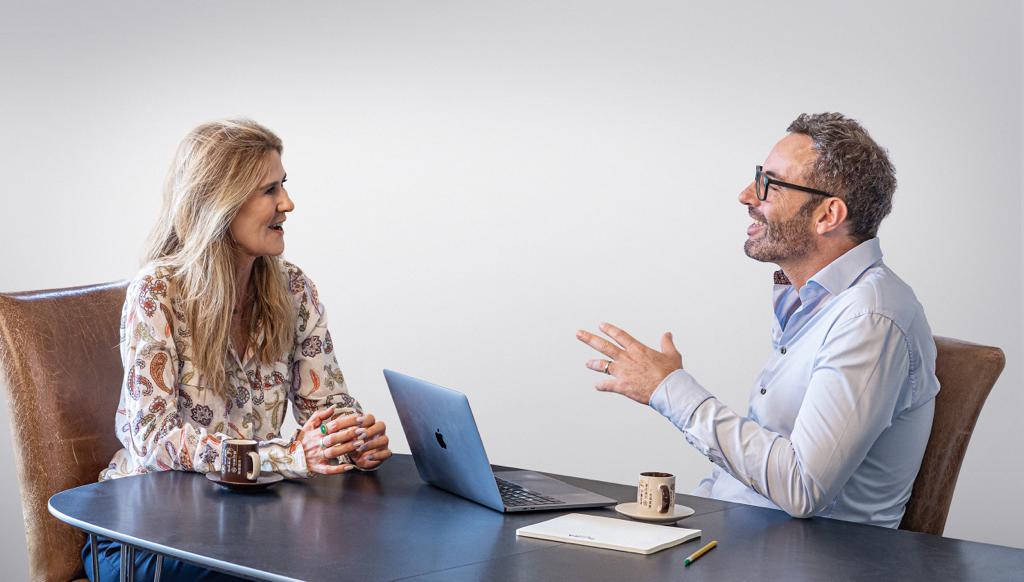From Oreos and Pepsi to sustainable agriculture
Gil Horsky left the snacking world behind to co-found a new Israeli venture capital firm focused on agrifood tech companies and healthy eating

Flora Ventures
Flora Ventures cofounders Esther Barak Landes and Gil Horsky
TEL AVIV, Israel – Over the past 16 years, Gil Horsky has been developing global strategies for selling Oreo cookies and Pepsi-Cola.
Now he’s using his experience at Mondelez International and PepsiCo, two of the world’s largest snack-food manufacturers, to build a venture capital fund focused on healthy eating, desert farming and sustainable methods for feeding the earth’s population.
Horsky, 47, and his partner, Esther Barak-Landes, announced last week that they raised $50 million for their new Tel Aviv-based fund, Flora Ventures, and expect to attract another $30 million.
The fund will invest in so-called agrifood companies, Horsky said, with backing from the Harel Group, Israel’s fourth-largest insurer; Haifa Group, a maker of fertilizers and plant nutrition products; and Sadot Kibbutzim, a cooperative marketing organization representing 185 kibbutz farms. Flora is also in discussions with possible investors from Arab countries in the Gulf, he said.
“We specifically invest in companies that are in the agrifood value chain, always touching one of two parallel universes, either human health or planetary health,” Horsky told The Circuit.
“On the human health side, we’re looking at companies in areas such as sugar reduction, functional ingredients and food as medicine,” he said. “On the planetary health side, we’re interested in… sustainable packaging. regenerative agriculture…. and the whole movement of food security – how do we grow more with less and how are we more efficient with our water usage.”
Flora plans to invest $1 million to $4 million in promising startups, Horsky said. The fund recently made its first investment in Arrakis Bio, which is developing technology for the animal-free production of collagen – the primary component of skin, muscles, bones, tendons and ligaments – and gelatin, the basis for many food products.
After working as a marketing executive for the biscuit and chocolate divisions at Chicago-based Mondelez, the $100 billion snack food giant that owns Nabisco and Cadbury, Horsky was named senior director of the company’s venture arm, SnackFutures. It was there that he made an investment for Mondelez in Israel’s Torr FoodTech and focused on agricultural innovation.
Barak-Landes, an Israeli lawyer and veteran VC investor, was co-founder of Nielsen Innovate, the business incubator and investment arm of the New York company known for its media audience surveys.
“The downturn in the economy actually makes it a very good time to invest,” Horsky said. “The valuations are good so that you can really build great companies and we’ve seen in history that when there are tough economic conditions, that’s actually when you have the best vintages of startups pumping up the best performance for VCs.”
Horsky said Israel’s expertise in desert agriculture has attracted attention from investors in the Gulf, where the arid climate has made food security and farming technology a government priority, and led to a series of meetings on the possibility of investing with Flora.










